George W. Hart
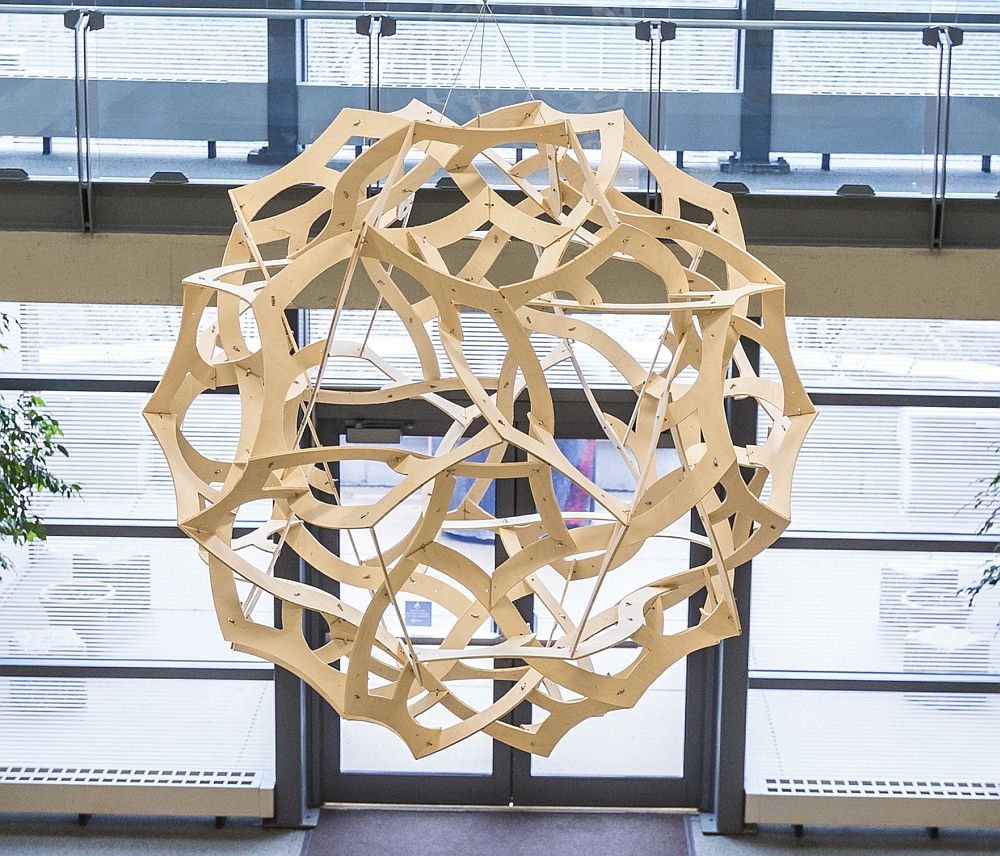
Ambagesque (from the Latin word for "tangle") is a
five-foot diameter wooden sculpture at Macalester College in
St. Paul, Minnesota. Commissioned by the Department of
Mathematics, Statistics, and Computer Science, it was
assembled by students at a "sculpture barn raising" and
installed March 22, 2016.
You can get a better sense of the structure from this video of it rotating.
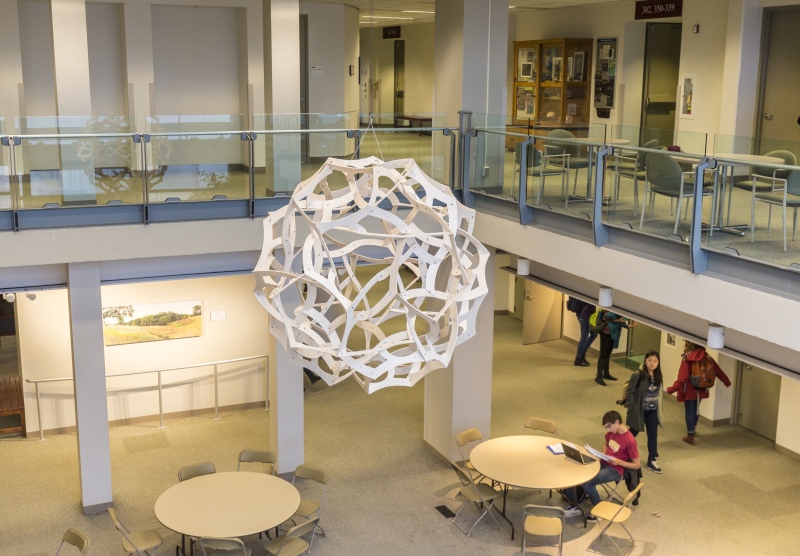
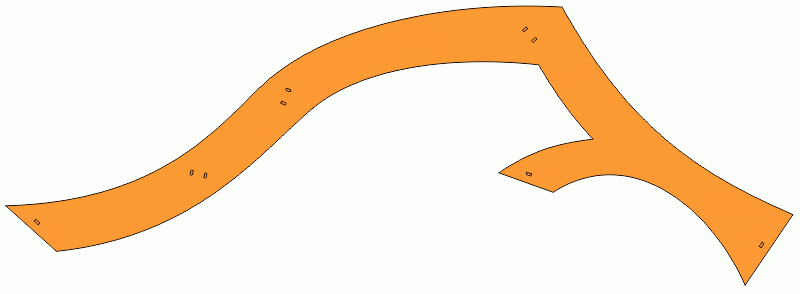
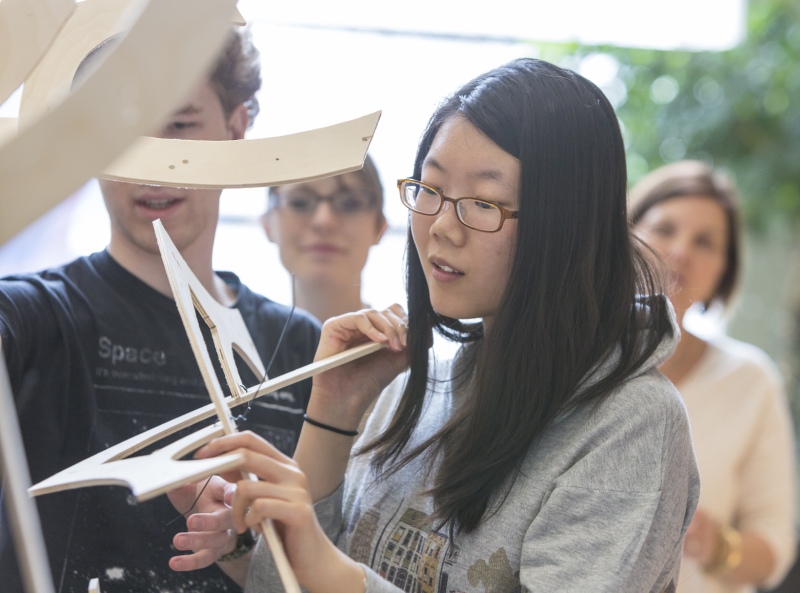
.
At the assembly event, I led students in the process of connecting the pieces with cable ties. The parts are made of 1/4-inch thick plywood. The first step is to join two components into a simple module. But it is not really so simple, as there is already an issue of handedness that must be considered.
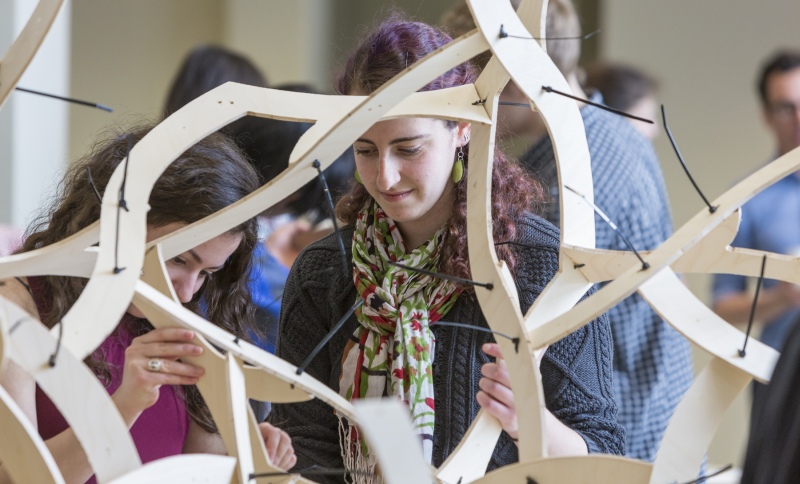
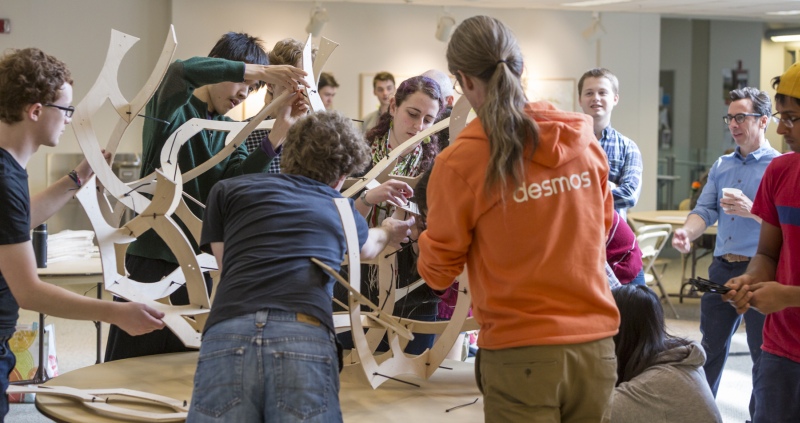
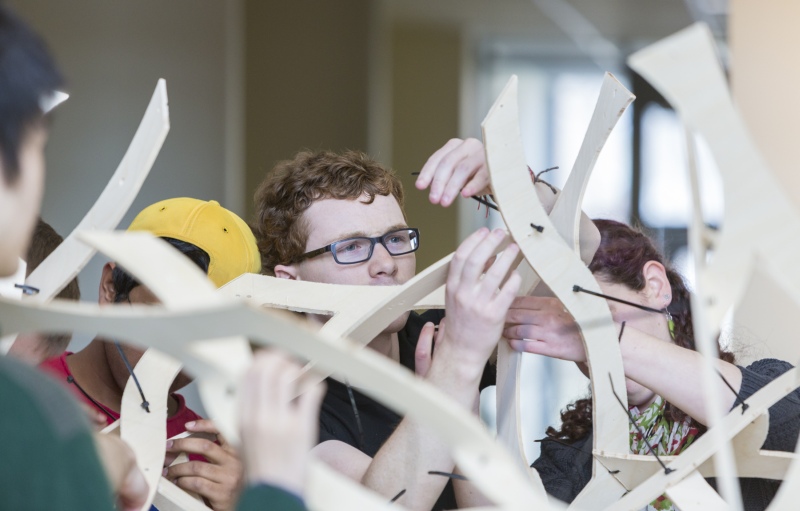
As it grows, the structure begins to take form and the symmetry becomes apparent.
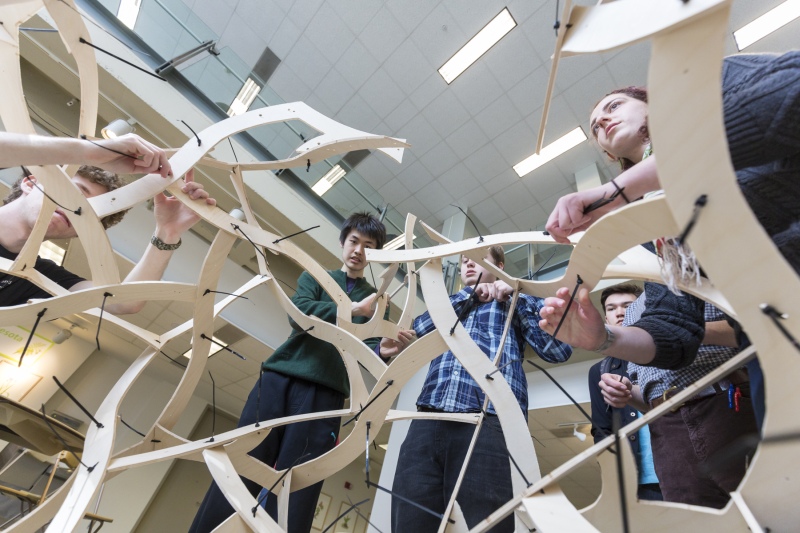
The structure has icosahedral symmetry, with 2-fold, 3-fold and 5-fold rotational axes.
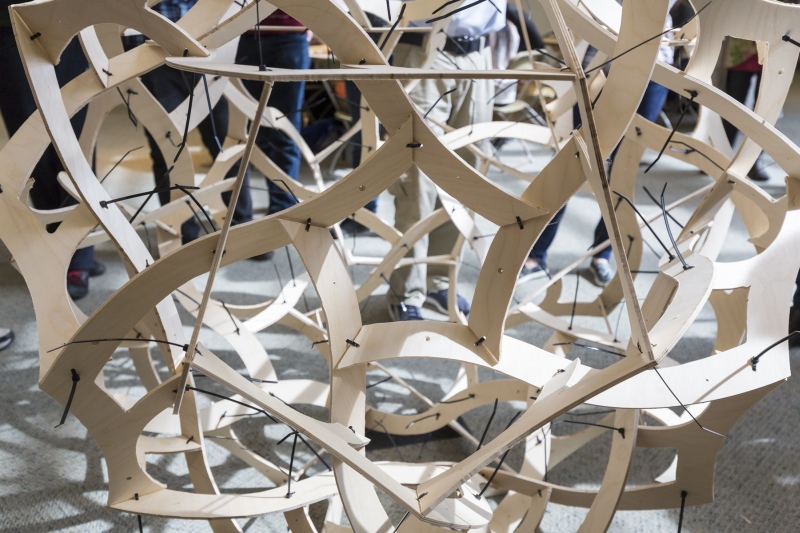
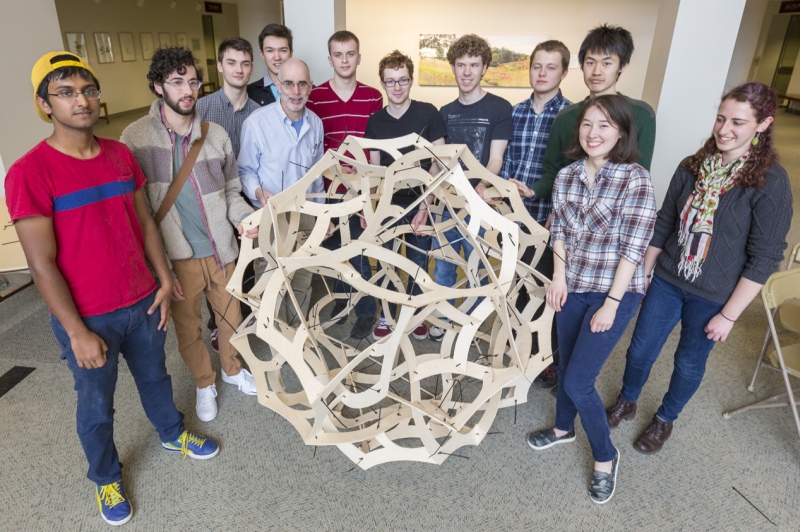
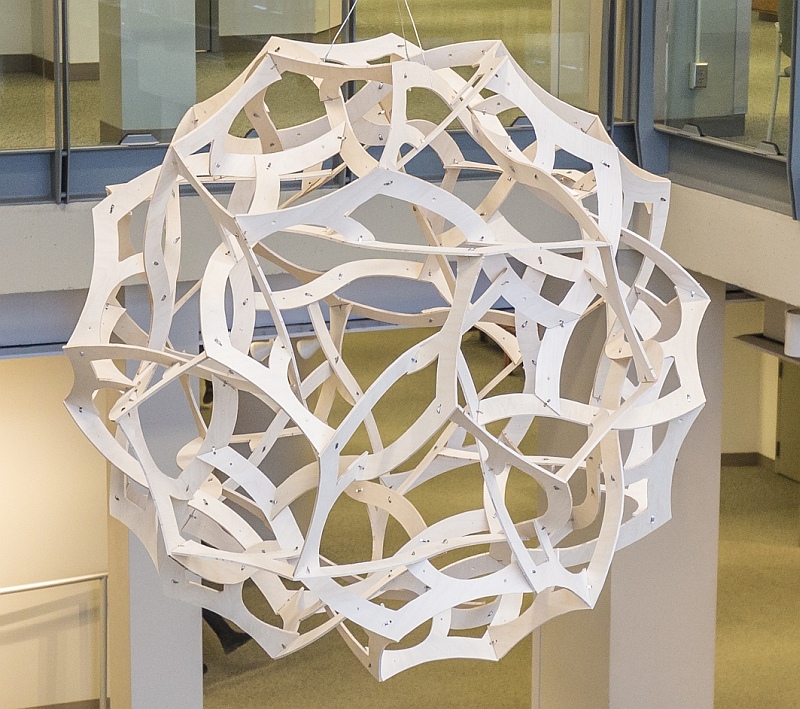
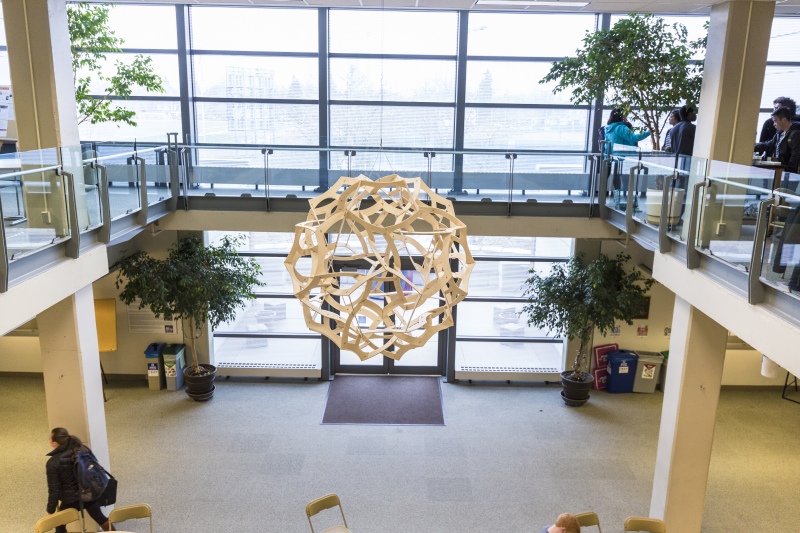
It is hanging in the two-story atrium of the Olin-Rice building if you would like to visit it.
To get a better sense of the assembly event, see this video by August Halverson.
You can get a better sense of the structure from this video of it rotating.

I like that it is installed so
that it can be seen from either above or below. That
allows viewers to get a better sense of its geometry.

Because it could initially appear like a
confusing tangle, it might require some study to realize
that it consists of sixty copies of a single flat shape,
shown in the template above. The shape is carefully
designed to exactly meet with itself in many ways.

At the assembly event, I led students in the process of connecting the pieces with cable ties. The parts are made of 1/4-inch thick plywood. The first step is to join two components into a simple module. But it is not really so simple, as there is already an issue of handedness that must be considered.

The modules are then connected
together in specific ways to make a variety of
openings.

Each part connects to other parts in
six places, so it is highly interconnected and
rigid.

As it grows, the structure begins to take form and the symmetry becomes apparent.

The structure has icosahedral symmetry, with 2-fold, 3-fold and 5-fold rotational axes.

Looking straight into a 5-fold
axis gives a good view. There are twelve such
openings around the sculpture.

When the plastic cable ties are
all in place, we pause to take a group photo, but it
is not finished yet.

We replaced the plastic cable ties
with metal cable ties, which are permanent, and the
buildings people suspended it.

It is hanging in the two-story atrium of the Olin-Rice building if you would like to visit it.
To get a better sense of the assembly event, see this video by August Halverson.
Thank you to everyone at Macalester who
participated, especially
Tom Halverson, who organized the many excellent arrangements.
There are many more photos in the article Making Math Beautiful, by Alexandra McLaughlin.
Tom Halverson, who organized the many excellent arrangements.
There are many more photos in the article Making Math Beautiful, by Alexandra McLaughlin.
I later made a small version of this
design from fluourescent acrylic, shown here.